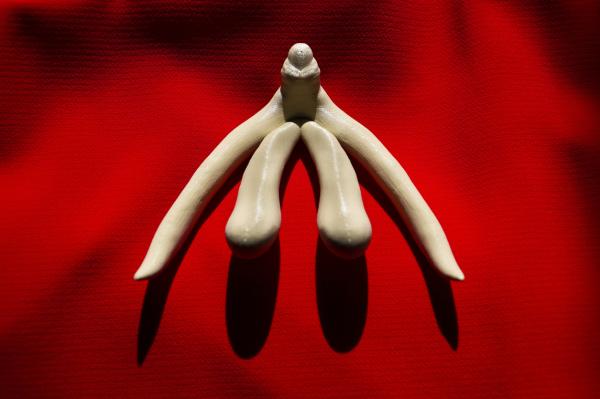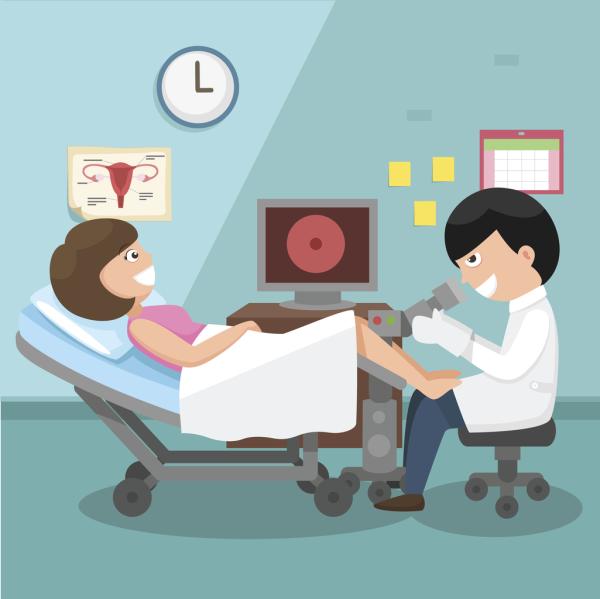Clitorodynia: Symptoms, Causes and Cure


If you have recently noticed pain in the clitoris or even swelling in the area, you may have reached the conclusion you are suffering from Clitorodynia. This condition is known as a form of Vulvodynia, which is the sensation of chronic pain in the vulvar region in women. Clitorodynia is therefore known as the pain that is centered in the clitoris region and can be a symptom of other conditions or have different causes too.
At oneHOWTO we want to tell you a bit more about Clitorodynia by telling you more about the symptoms you may be experiencing, why you have it in the first place and what to do to get rid of it.
Symptoms of Clitorodynia
The clitoris has thousands of nerves, which is what makes this organ extremely sensitive but fragile too. The symptoms of clitorodynia will always be more acute when there is physical contact with the clitoris. To know if you have clitorodynia, you should have most of the symptoms mentioned below:
- Pain in the clitoris during sexual intercourse
- Throbbing and swelling of the clitoris
- Burning sensation, especially during night
- Difficulty urinating
Causes of Clitorodynia
As we have mentioned above, there are many reasons why you may have contracted clitorodynia, as it can be both a symptom of another disease or the result of another condition. Let's take a closer look to all the possible reasons why you may have clitortodynia.
Keratin pearl buildup
As you may know, the clitoris is hidden within a prepuce, and is visible with a woman's arousal. Sometimes, Keratin pearls may build up in the area between the clitoris and the prepuce hood, creating a type of grain-like buildup. This will build in the Epithelium layer of your skin's tissue.
Vestibulodynia
Clytorodinia may also frequently be a symptom of Vestibulodynia, another type of Vulvodynia that affects the vestibular entrance of the vagina. The fact that lubrication is created by the glands in this area, means that if you suffer from Vestibulodynia your clitoris may suffer the consequences of lack of lubrication.
Lichen sclerosus
This is a dermatological condition that is triggered by an overactive immune system. This skin condition is pretty common in women going through menopause. If this is your case, you will notice that the clitoris area may also seem cracked, will itch and red or purple blisters will appear.

Lichen planus
According to the American Academy of Dermatology, this skin condition may appear in more than one place. Small blisters will form topically and may be caused in turn by an allergy, stress or a viral infection. You will also notice itchiness in the area of the blisters.
Multiple sclerosis
Another reason why you may have clitodynia is that you are developing or have multiple sclerosis. The lesions produced in the spinal cord due to this disease may prevent vasocongestion during sexual intercourse, causing this condition in the long run.
Herniated disc
If the tissues between vertebra that protect the spinal cord wear, it can press on spinal norves that connect other parts of the body's systems. According to doctor Franco Postacchini from the Sapienza University of Rome, if the lumbosacral nerve roots are affected by this condition, the body's parasympathetic system will be affected too, this will in turn affect the vasodialtion of the clitoris.
Trauma
Different types of trauma can affect the proper function of the clitoris and thus producing Clitorodynia. For example, women who have given birth through their vagina or have undergone surgery in the area may have suffered injury of the pudelendal nerve or dorsal clitorial branch of the pudelendal nerve.
How to treat Clitorodynia
The proper treatment of Clitorodynia will highly depend on what the underlying reason for this condition is, which is why it's highly important to search help from a professional in order to be diagnosed correctly so your doctor can offer the appropriate treatment.
Take a look at the most common treatments prescribed for each case:
- If you have this condition due to Keratin pearl buildup, these pearls will need to be removed, though it is the doctor's decision whether they will need to be extracted surgically or not, in order to break the Keratin pearl adhesions.
- If it is due to vestibulodynia and is related to fibromyalgia and fatigue, it's highly important you get rid of foods with high oxalate levels in your diet to prevent pain during urination, practice metitation or other relaxation methods.
- If your clitorodynia is also related to a neurological problem you may also be prescribed antidepressants. You can also help speed the process of recovery by using natural antidepressants such as ginger and other serotonin boosters.
- To ease the burning sensation, you may also be prescribed with over the counter anesthetics. You can also try these methods to ease the pain of clitoris swelling.
How to prevent Clitorodynia
Now that you know everything there is to Ciltorodynia, let's take a look at how to avoid this condition from reoccurring or becoming chronic:
- Use relaxation methods frequently if you're in a stressful environment.
- Do sport frequently, though you should make sure you use cotton underwear to avoid rubbing.
- Don't use pants that are very tight on the crotch area.
- Follow a diet low in purines and oxalates if this condition reoccurs frequently to avoid high uric acid levels.
- Follow a healthy lifestyle on all levels and pay attention to your genital hygiene.

This article is merely informative, oneHOWTO does not have the authority to prescribe any medical treatments or create a diagnosis. We invite you to visit your doctor if you have any type of condition or pain.
If you want to read similar articles to Clitorodynia: Symptoms, Causes and Cure, we recommend you visit our Family health category.






